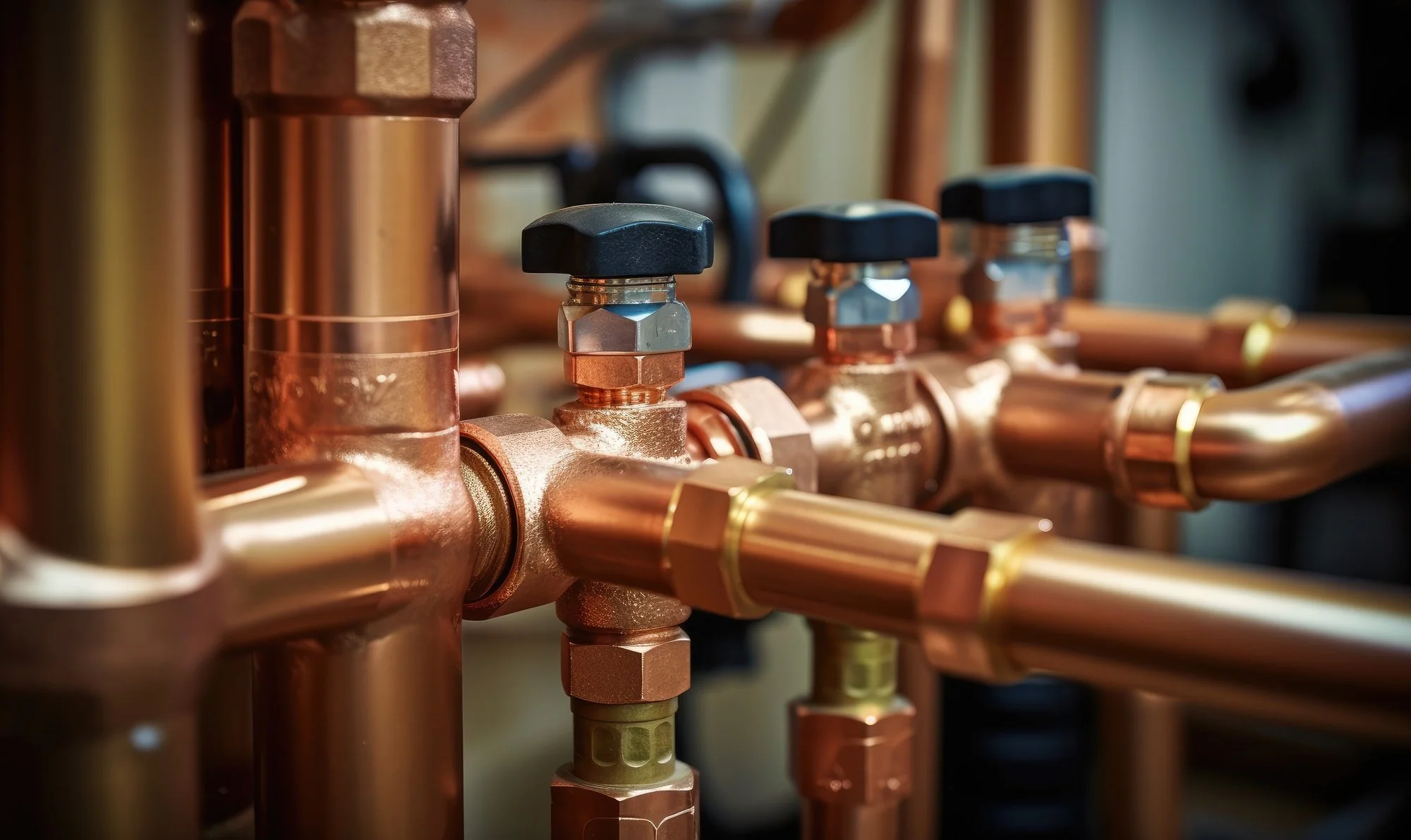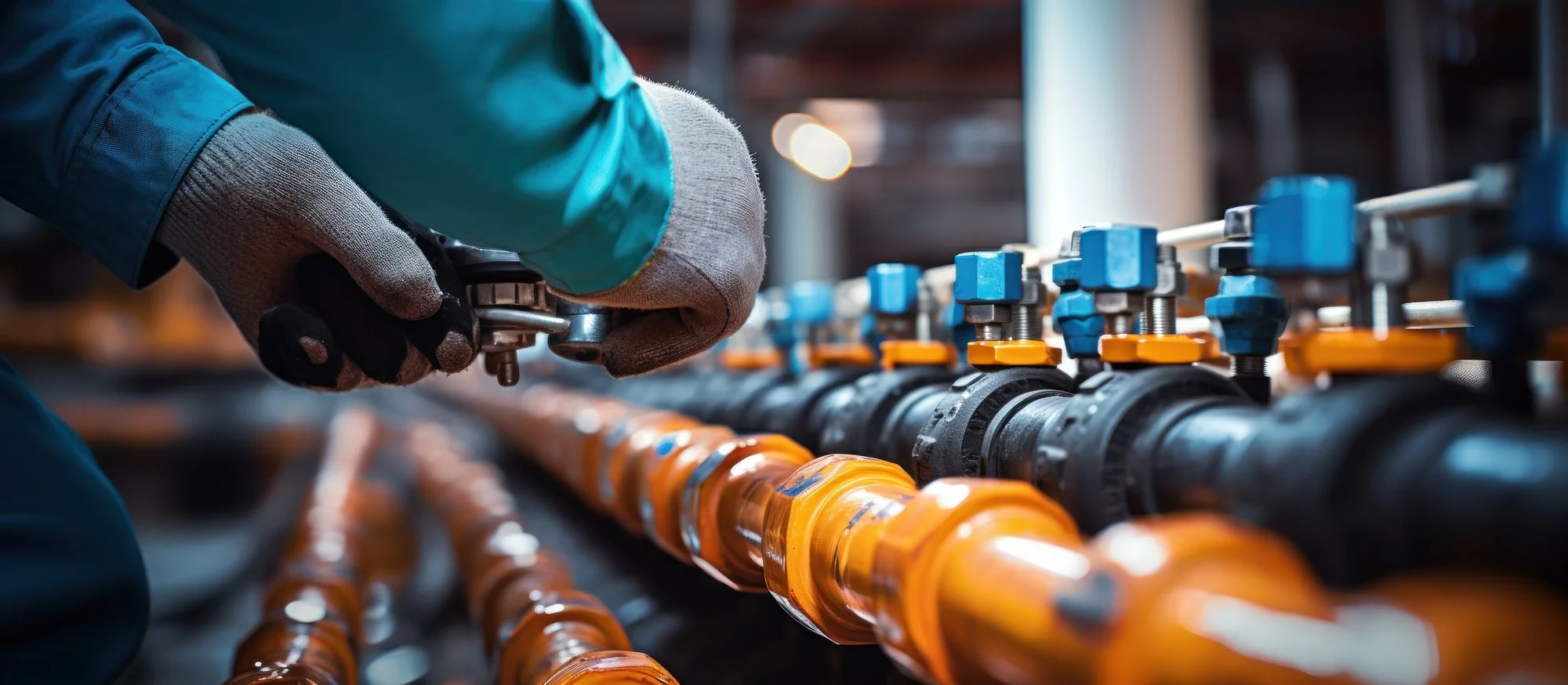PRECISION WATER CONTROL: INTEGRATING VALVES IN PLUMBING DESIGN
RH Business Marketing Solutions
Efficiency and performance are essential in modern plumbing design, with precision water control being a critical component. More than just regulating water flow, it focuses on enhancing how water moves and is utilized within a building's plumbing infrastructure.
At the core of this enhancement is the strategic use of valves, small but crucial elements that play a significant role in ensuring a plumbing system's effectiveness and reliability.
Understanding Precision Water Control
Precision water control in plumbing focuses on accurately managing the flow, pressure, and temperature of water within a system. This specialized control ensures efficient, safe, and consistent delivery of water.
The effectiveness of precision water control depends on several key factors:
Quality Of Plumbing Fixtures: The better the fixtures, the more accurate the water control. High-quality fixtures contribute to more reliable and precise management of water flow and temperature.
Environmental Factors: External conditions like temperature changes and water supply variations can impact water control. Adaptable systems, equipped with reliable components such as Asco valves, are crucial for maintaining consistent performance.
System Design: The layout and components of the plumbing system, including valves and sensors, are vital for precise control. A well-planned design is fundamental to achieving efficient water management.
These elements work together to define the success of precision water control in plumbing, highlighting the need for quality materials and thoughtful system design.
The Role Of Valve Integration In Plumbing Design
Valve integration plays a significant role in precision water control within plumbing systems. It serves as the primary mechanism for regulating water flow and pressure.
Regulating Water Flow And Pressure: Valves are fundamental in controlling the flow and maintaining the pressure balance within plumbing systems. This includes various types of valves, each designed for specific functions.
Managing High-Rise Pressure: In high-rise buildings, valve integration plays a critical role in managing the high pressure of water from the mains. Pressure-reducing valves are essential to ensure a consistent and safe water flow throughout the building.
Ensuring Safety And Consistency: The integration of thermostatic valves in shower systems maintains consistent water temperature, thus ensuring user safety against scalding.
Achieving System-Wide Control: Integrating valves is not just about installation. It's also about understanding their interaction with the entire plumbing system for optimal control. For example, using solenoid valves in automatic lawn sprinkler systems results in precise control of water distribution to different zones in a garden.
These points highlight how valve integration is integral to achieving control, safety, and efficiency in plumbing design. This ensures the system functions effectively and reliably.
Maximizing Efficiency And Performance Through Valve Integration
Integrating valves effectively in plumbing systems is crucial in maximizing efficiency and performance. Here's how:
Optimized Water Usage: By accurately controlling water flow and pressure, integrated valves ensure that water is utilized efficiently, reducing both energy consumption and water wastage. This is particularly effective in systems where pumps and heaters are used, as it leads to less operational strain and lower energy bills.
System Reliability: A well-integrated valve system enhances the reliability and longevity of plumbing infrastructure. It prevents issues like water hammer—a sudden pressure surge in pipes—which, in turn, decreases the need for frequent repairs and maintenance.
Enhanced Safety: Valves, particularly pressure safety valves, play a vital role in ensuring safety. They act as a safeguard by regulating system pressures and preventing overpressure conditions, thereby protecting users from potential hazards caused by sudden pressure changes.
Effective valve integration is more than a technical upgrade. More importantly, it contributes to sustainable and safe water management. This approach saves resources, making it a wise investment in any plumbing infrastructure.
Overcoming Challenges In Valve Integration
Integrating valves into a plumbing system is not without its challenges.
Compatibility: Different plumbing systems require specific types of valves, and selecting the wrong type can lead to inefficiencies or even system failure. Employing the expertise of a qualified plumbing engineer or consultant can ensure that the right type of valve is selected for each application, optimizing system performance.
Maintenance: Valves, like any mechanical component, are subject to wear and tear. Thus, it's necessary to conduct regular maintenance, which includes routine checks for leaks, corrosion, and proper operation. This can greatly extend the life of the valves and maintain system efficiency.
Cost: The initial investment in high-quality valves and their installation might appear substantial. However, such valves typically require less maintenance and are more durable. Thus, the long-term savings in water and energy, as well as reduced maintenance costs, often justify the expenditure.
Despite these challenges, integrating valves in plumbing systems is vital for enhancing efficiency and sustainability. It's a strategic investment that significantly improves water management and ensures long-term performance and reliability in your plumbing systems.
Final Thoughts
Precision water control, achieved through the integration of valves, is more than a technical improvement in plumbing systems. It's a step towards sustainable and optimal water management. Looking ahead, future developments in valve technology and integration techniques are poised to enhance system capabilities and user convenience.
For architects, plumbers, and homeowners alike, adopting valve integration in plumbing design has become essential in building more efficient, safe, and sustainable environments. It may be time to break away from traditional plumbing practices and adopt new methods characterized by precision and control.

